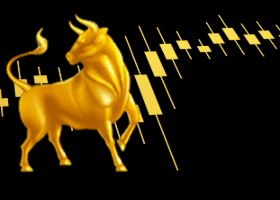The self-coaching process is very simple and at a bare minimum, only requires three things:
A forex trading journal,
Lots of self reflection and being honest about yourself, and
Writing it all down.
Being able to screenshot forex charts and markin’ them up would make the process more efficient, as well as keeping a spreadsheet of your trading data, but if you have great attention to detail and you’re good with words, then it’s possible to work your way to the competency stage of development by diligently keeping a simple written journal.
The basic self-coaching process is the same as what a coach does:
1. Observe and record everything.
Write down your efforts, plans, and any mistakes and observations about yourself and market behavior that need to be addressed. Remember, what isn’t measured can’t be managed or improved.
2. Review your observations.
With the solid fundamental forex trading knowledge and skillset already acquired, review your observations and determine how you can make better decisions or improve the trading process.
Again, trading concepts are pretty simple and only requires common sense to improve and avoid mistakes. But you have to ask A LOT of questions. Don’t just look at a winning trade and think, “I should have had a bigger gain.”
Ask yourself questions to find out how to improve. Was my target appropriate? Should I have added to my position in this environment? Was my entry the best in this particular situation? If you really need help, show your journal to others for feedback.
3. Create guidelines.
With your self analysis (or tips from others), create guidelines to help you avoid bad trading habits and to remember to practice good trading habits for future trading sessions. With time and practice, this can be internalized, but you should make it a habit to review it regularly.
Write down why you got into trading and/or your life goals. Review every day to motivate you. You will need to do this because there will be days (very many in the beginning) where trading will not fun (READ: profitable).
4. Rinse, repeat and stay focused.
That’s it, forex folks. Simple, but not easy as this will obviously be a lot of work. A lot of the questions you ask yourself to improve will take time, and maybe some experimentation, before you find the right answer that fits you.
And don’t think this process only applies to
discretionary traders , chartists, or mechanical traders. Robots need to be watch and improved upon as well, and as with any other tool, applied to the situation it was made for.
Keep in mind that there is no guarantee of success in anything we do, even when years of hard work is applied. This is especially true in the world of trading and investing as it will always be a game of probabilities.
But the one thing that I can say is that without a process of deliberate practice and reflection like self-coaching, your probability of success in this business is significantly reduced; maybe even zero.
So, don’t just look at charts, aimlessly buy or sell, call it day, and then grab a drink with friends to celebrate (or sulk) over your trading session…grab your journal and get to work!


